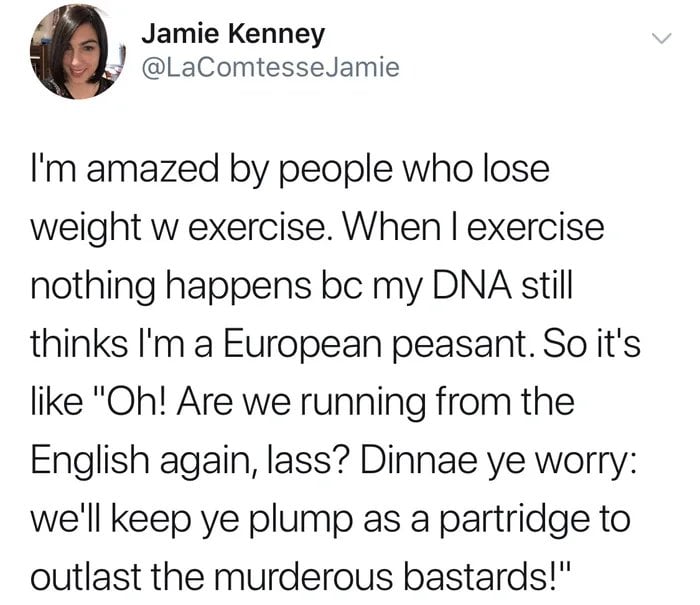this post was submitted on 01 Aug 2024
1056 points (96.0% liked)
me_irl
4683 readers
4 users here now
All posts need to have the same title: me_irl it is allowed to use an emoji instead of the underscore _
founded 1 year ago
MODERATORS
you are viewing a single comment's thread
view the rest of the comments
view the rest of the comments

https://www.latimes.com/health/la-xpm-2011-may-16-la-he-fitness-muscle-myth-20110516-story.html
Seems like its a "technically true" but in practice irrelevant because muscle and fat only make up a tiny percent of total energy usage (because things like the brain, heart and liver are so energy intensive):
And that's why I referred to it as a 'side benefit'. It doesn't do much more, but it's not nothing, you know?
Not to mention all of the other more overt health benefits from exercise in general.